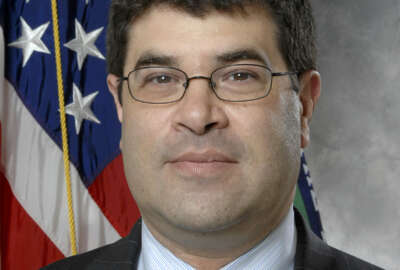
IGs offer insight, advice to procurement industry ahead of new administration
Three agency inspectors general say the ongoing presidential transition won't sway their work overseeing federal agencies. They also advised the procurement...
The first year of an administration can bring sweeping changes in workforce and policy, but for the inspectors general overseeing agencies, it’s business as usual.
Speaking on a panel during a Nov. 17 Coalition for Government Procurement event in Tysons Corner, Virginia, acting Defense Department Inspector General Glenn Fine said he didn’t see the presidential transition “as dramatically different” than any other time of the federal year.
“To be honest, we’re always busy,” Fine said. “I’m sure we’ll get additional requests, but we get them at all times. Somebody asked me the other day, is it gonna change now with one party controlling the presidency and Congress. I don’t believe so. I believe that we are non-partisan, we’re independent, and we’re going to be doing what we’re doing in the same way we’re doing it, regardless of the political changes. And in fact, that’s what I tell our folks in the IG community, that it is important for us not to be aligned with one side or the other, not to try to even maneuver in that way.”
Fine, who was appointed chairman of the Council of Inspectors General on Integrity and Efficiency’s (CIGIE) presidential transition working group, said the workload of an IG’s office depends on the department.
When he served as Department of Justice IG from 2000-2011, it was very busy, Fine said.
“Can you predict that happening again, no, I think it all depends and we just have to be prepared and ready to handle whatever comes our way,” Fine said.
Earlier this month, Molly Reynolds, a governance studies fellow at the Brookings Institution, told Federal News Radio that Congress typically holds fewer oversight and investigative hearings under unified legislative and executive branches.
Steve Linick, State Department IG, said while he hasn’t yet been through a presidential transition, the education component for the new faces “is daunting.”
“I’ve spent a lot of time trying to educate folks at the State Department of what our role is, and we often find that a lot of people don’t really understand our role,” Linick said. “Having to go through that again with new folks is going to be a challenge, it’s something that’s going to take time.”
Fine added that an IG office is like an institutional memory of an agency.
“We know where the issues are, where the top management challenges are,” he said. “We know what ongoing important work is being done and we know what they’re going to face.”
Getting input
Education was a theme during the coalition’s IG panel — not just for new appointees, but the procurement industry as well.
Carol Ochoa, inspector general for the General Services Administration, said providing access to documents helps a company avoid additional investigation from an OIG.
“Your goal should be to cooperate with us fully,” Ochoa said. “To give us access to all of the information that the auditors seek.”
Making sure auditors are talking to the people who can answer questions and know what’s going on can smooth things along, Ochoa said.
“The longer the audit process takes, in particular if the auditor starts sniffing that there’s something behind a delay maybe other than just trying to get documents together, that can lead to recommendations, for example, not to award the contract or not to extend the contract,” Ochoa said. “It can leads to tips to our investigation offices, and can lead down roads you don’t really want to go.”
Linick said his office has also had some problems getting access to documents and individuals during audits, as well as non-disparagement agreements between contractors and their employees.
“The problem is it’s had a chilling effect on some of the employees and they’re not reporting fraud, waste and abuse like they’re required to do under the FAR [Federal Acquisition Regulation] Mandatory Disclosure Rule Program.”
Fine said his office plans to make about 10 percent of its reports about follow-up reviews, to ensure management is taking action on recommendations.
“We can’t force management to do anything other than respond to our reports,” Fine said. “But if they respond they’re going to do something, we’ve got to follow up to make sure they do it.”
Fine said his office is also going to seek input from contractors named in its reports, which hasn’t always been done in the past.
“We would have an audit that addressed an acquisition issue and our recommendations are made to the department how to oversee it,” Fine said. “But we made comments about how a business or contractor handled something. I think it’s important that we get input from the contractor.”
Read the latest news about the incoming administration on our Tracking the Transition page.
Copyright © 2025 Federal News Network. All rights reserved. This website is not intended for users located within the European Economic Area.
Related Stories






